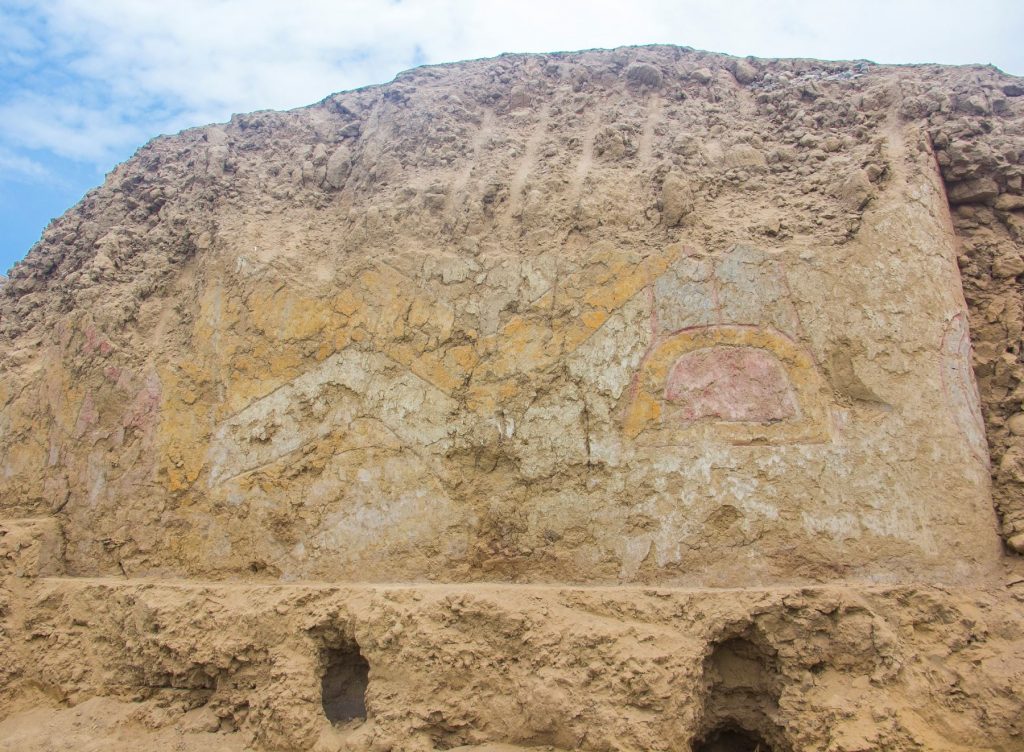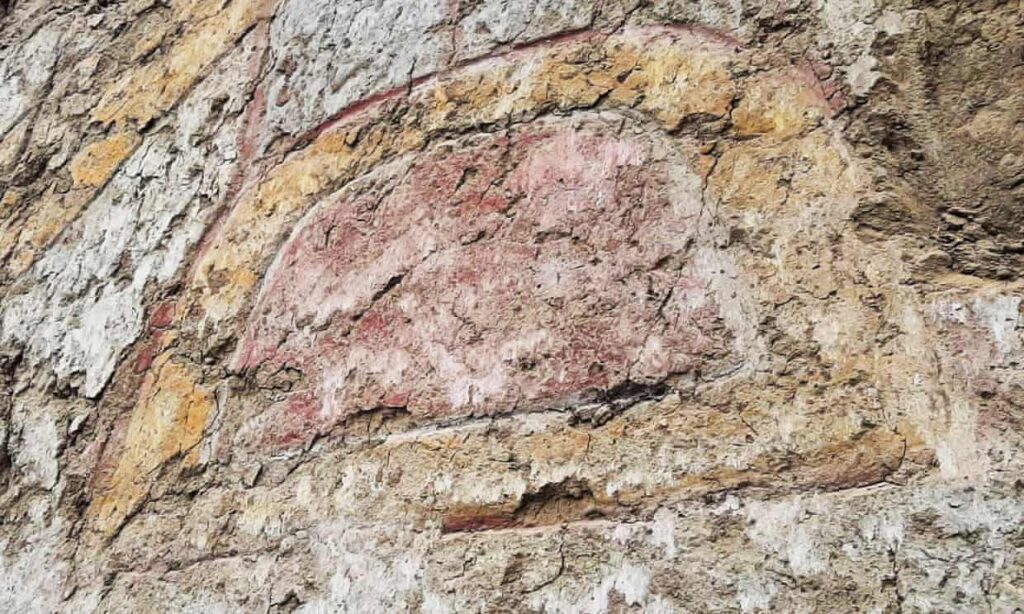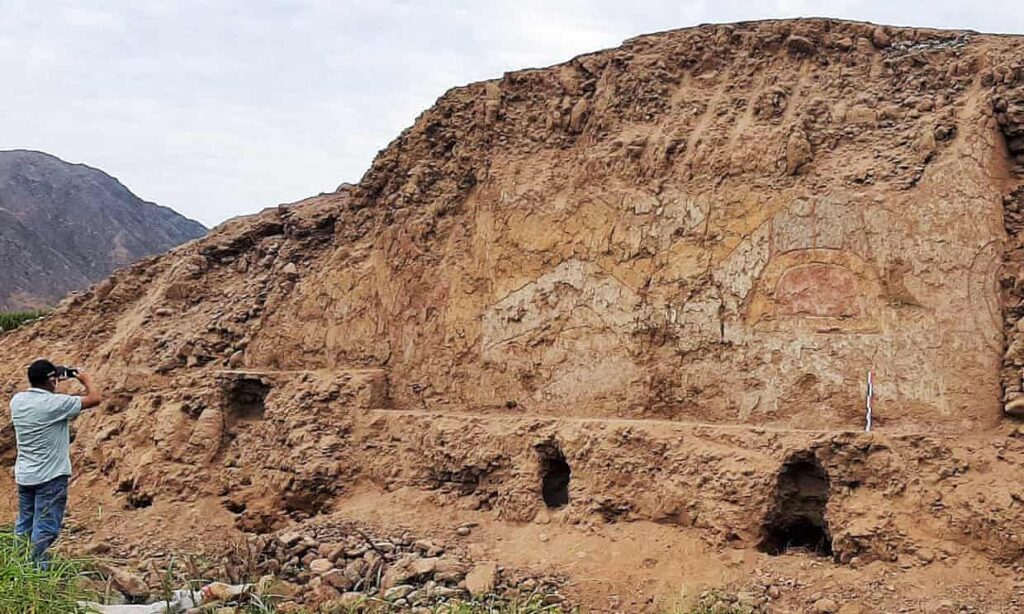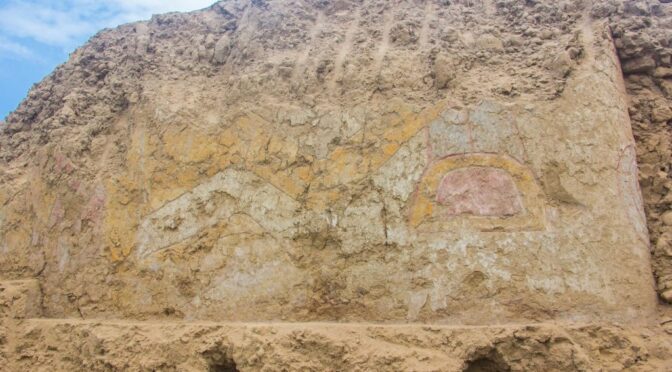Archaeologists Have Discovered a 3,200-Year-Old Mural of a Knife-Wielding Spider God in Peru
Archaeologists have discovered a 3,200-year-old mural of a spider god at an ancient temple complex in northern Peru’s Virú province, around 300 miles north of Lima.

The painting, in shades of ochre, yellow, gray, and white, was found on the side of an adobe structure made from mud bricks, reports the Guardian. The zoomorphic design is believed to represent a spider wielding a knife.
Local avocado and sugarcane farmers discovered the historic artwork in November while using heavy machinery to plow new fields, which inadvertently destroyed about 60 percent of the site. Because it is located near a river, the temple was likely dedicated to water deities.
“What we have here is a shrine that would have been a ceremonial center thousands of years ago,” archaeologist Régulo Franco Jordán told Peru’s La República newspaper.
“The spider on the shrine is associated with water and was an incredibly important animal in pre-Hispanic cultures, which lived according to a ceremonial calendar.
It’s likely that there was a special, sacred water ceremony held between January and March when the rains came down from the higher areas.”

Jordán was called to investigate the discovery by a friend who lives in the area. “When I arrived I was so surprised to see an impressive facade, with geometric figures,” he told Peruvian state news agency Andina.
The shrine was likely the work of Peru’s pre-Columbian Cupisnique culture, a people who lived on the nation’s northern coast more than 3,000 years ago. Jordán has christened the site Tomabalito, after Castillo de Tomabal, another nearby archaeological site.

The government plans to begin emergency work to preserve the find next week, and has filed a complaint against the famers who damaged the ancient temple, reports Andina. Further excavations are planned for after the pandemic.
Other recent archaeological discoveries in Peru include a new Nazca line geoglyph of a giant cat, which was discovered in October. The massive hilltop drawing is believed to date to between 200 BC and 100 BC.
